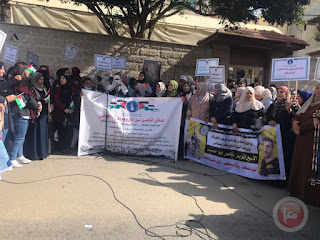As my readers know, I like to expose the stupid things published about Israel in academic papers.
Here I focus on three aspects of the slow violence of settler colonialism and its relationship to political ecology: the unleashing of wild boars into Palestinian villages and the decimation of seasonal agriculture, the dumping of sewage waste of Israeli settlements onto Palestinian villages, and the curtailment of indigenous centered modes of production and mobility.
When he
proposed this research, he also added something about "reinforcing notions of Patriarchal development" but inexplicably that line of research did not make it into his final paper, perhaps because it would have softened his anti-Israel lies.
But the proposal included the "wild boars" theme.
Now think about this for a second. If someone proposes a doctoral thesis based on the truth of wild and false rumors about Israel, and it gets approved by their supervisor, what are the chances that this "academic researcher" will be objective when they write the paper itself? Indeed, the proposal and the abstract are very similar. The conclusions were drawn before the research.
Which is how 99% of "social science" works.
It turns out that this isn't the only academic fraud who mindlessly repeats the most insane antisemitic conspiracy theories, that religious Jewish settlers or the IDF are raising non-kosher and untamable wild boars to release them in Palestinian Arab farms.
Israel releases wild boars, pigs, stray dogs, and large
rats in the OPT. According to reports issued by Israeli
and Palestinian institutions, the Israeli authorities release
wild boars, pigs, dogs, and large rats in the OPT, especially the West Bank. The Palestinian Authority’s
President—Mahmoud Abbas—accused Israel of releasing wild boars to destroy agricultural fields in the West
Bank to cause damage to produce and intimidate Palestinian farmers. Palestinians blame Israeli settlers
for deliberately releasing boars in the occupied West
Bank to deliberately attack villagers, as a way to keep
them off their land."
Middle East Monitor (2012) quotes the head of the Palestinian Centre for Environmental Development at Al-Quds Open University, Jamal Sabra, describing "the Israeli practice of releasing wild pigs in the vicinity of settlements – a practice which impacts on wild plants. "
In
"Palestine and (Human) Nature" (2016) by Naomi Foyle (University of Chichester), she describes Israel as "a nationalist settler movement led by wealthy Europeans and bankrolled by America [that] has dispossessed the indigenous Arab population and laid waste to their remaining natural resources. " Naturally, she parrots the "wild boar" claim with little skepticism:
Currently, in a development even Orwell couldn’t have made up, the Zionist assault on Palestinian farming allegedly extends to pig warfare. Growing up, Murad never saw a wild boar, which formerly existed only in the north of Palestine. Now there are thousands of them, a genuine plague of huge ferocious beasts that hold night orgies in farmers’ fields and groves, devouring crops and trampling the fragile roots of the olive trees. ...Villagers report seeing IDF helicopters landing to release pairs of the animals...
In DA Jaber's "
Settler colonialism and ecocide: case study of AlKhader, Palestine" - also in Settler Colonial Studies - we are told, "Qasim, an environmental activist, discussed the actions of settlers that cause the deterioration of agricultural lands. For example,
the releasing of rabbits and gazelles, which are not native to the agricultural lands of Al-Khader, onto farmlands, ruining the crops, in particular grapevines and Armenian cucumber plants." The footnote says, ". For more on settlers releasing animals on Palestinian agriculture destroying crops and, at times, harming Palestinians, see Jared Eglan, Beasts of War: The Militarization of Animals (Morrisville, NC: Lulu Press, 2015), 99; Ma’an News Agency ‘10-year-old Palestinian Girl Attacked by Wild Boar Near Jenin’, May 2017."
If only most academics has any intellectual honesty as Johnson does.
I wonder if any academic press would allow this research into the bias of academic research to be published.

 Elder of Ziyon
Elder of Ziyon






































